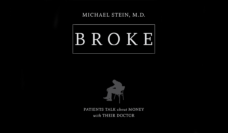Abuse within intimate relationships, known as intimate partner violence (IPV), is distressingly widespread. It spans a range of different behaviors, including physical, sexual, and psychological aggression. But not all of these behaviors are similarly perceived, which can make it difficult to recognize abuse. This is especially true for psychological abuse, where people struggle to differentiate between mild aggression (yelling, swearing, storming off) and more severe aggression (threatening, isolating, denying economic resources).
People are also more likely to view physical abuse as worse than psychological abuse because psychological aggression is less likely to cause visible injuries. However, psychological abuse occurs more commonly. Of ever-partnered women (women who have ever been in a relationship), 27% reported experiencing any physical violence or sexual violence in relationships. But recent studies have found that more than 30% of ever-partnered women experienced psychological violence alone in relationships.
Psychological aggression is a tactic perpetrators use to further isolate victims and ensure they cannot leave the relationship. Perpetrators may restrict victims’ access to financial resources, such as preventing victims from having jobs or using their existing funds, which is sometimes called economic abuse. Like other forms of psychological abuse, this treatment can leave victims feeling trapped.
Laura Johnson and colleagues explored the ways in which people who experience intimate partner violence navigate economic abuse and plan for their financial well-being, which might allow escape from an abusive relationship. The authors examined data from seven organizations that provide services to women experiencing intimate partner violence in the U.S. Organization clients were interviewed about their experiences with IPV, financial abuse, financial knowledge, and financial planning that could ensure safety or ability to escape violence. For the latter, clients were presented with 10 financial safety planning strategies that could help them mitigate the effects of economic abuse.
Hiding important documents was the most used strategy, while opening an emergency line of credit was used the least. Clients with greater financial knowledge were more likely to utilize financial safety planning strategies and other complex strategies that require financial literacy (developing a savings plan) and understanding of U.S. financial systems (monitoring credit, opening emergency credit lines).
Organizations that provide services to people experiencing intimate partner violence in the U.S. may find important lessons abroad.
The researchers suggest that victims of IPV who cannot navigate or access or use formal banking services face additional barriers to establishing the financial stability necessary to leave abusive relationships.
As U.S. support services consider how to better reach and support these victims of financial insecurity and abuse, they might turn to global research, where interventions have been tailored to meet the needs of survivors who use alternative financial sources to escape IPV. For example, microfinance programs providing small loans, financial incentives, or financial training have had success in reducing violence in lower-income countries.
Lao-Tzu Allan Blitz and colleagues examined the use of microfinance interventions specifically for IPV in several countries. They conducted a meta-analysis of 10 clinical trials that used group microloans, microsavings, microcredits, or cash transfers. These interventions reduced exposure to some violent behaviors: psychological IPV, emotional IPV, and controlling behaviors.
The authors highlight that the microfinance interventions improved economic standing for victims of IPV, especially when paired with a financial education component (for instance, how to establish a checking or savings account). But such a course of action could potentially further endanger victims if an abusive partner attempts to gain access to these financial resources. It is critical for any IPV intervention to consider how to ensure victims’ safety.
Organizations that provide services to people experiencing intimate partner violence in the U.S. may find important lessons abroad, as interventions commonly used in lower-income countries may prove advantageous for persons experiencing IPV in the U.S.
Photo via Getty Images














